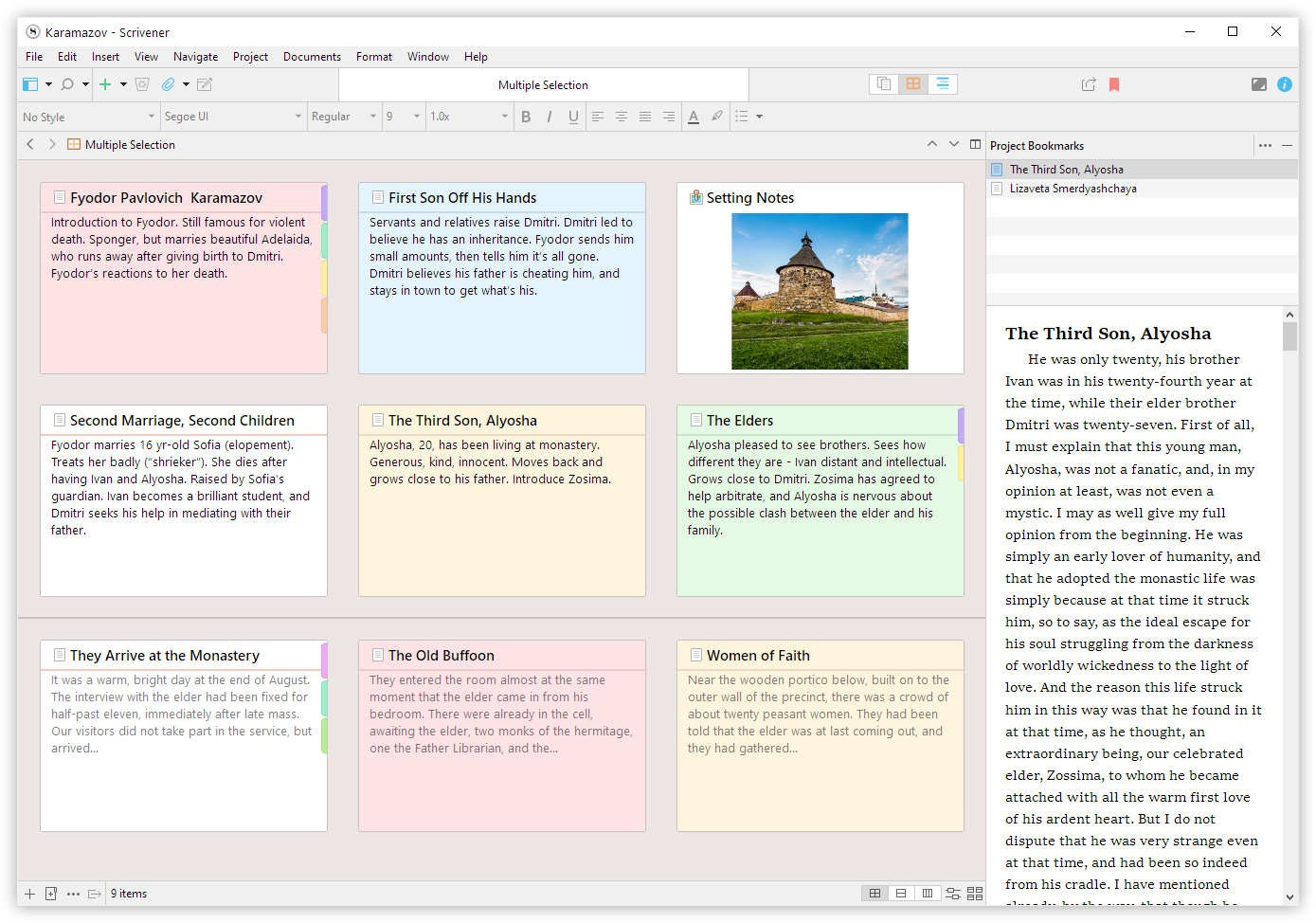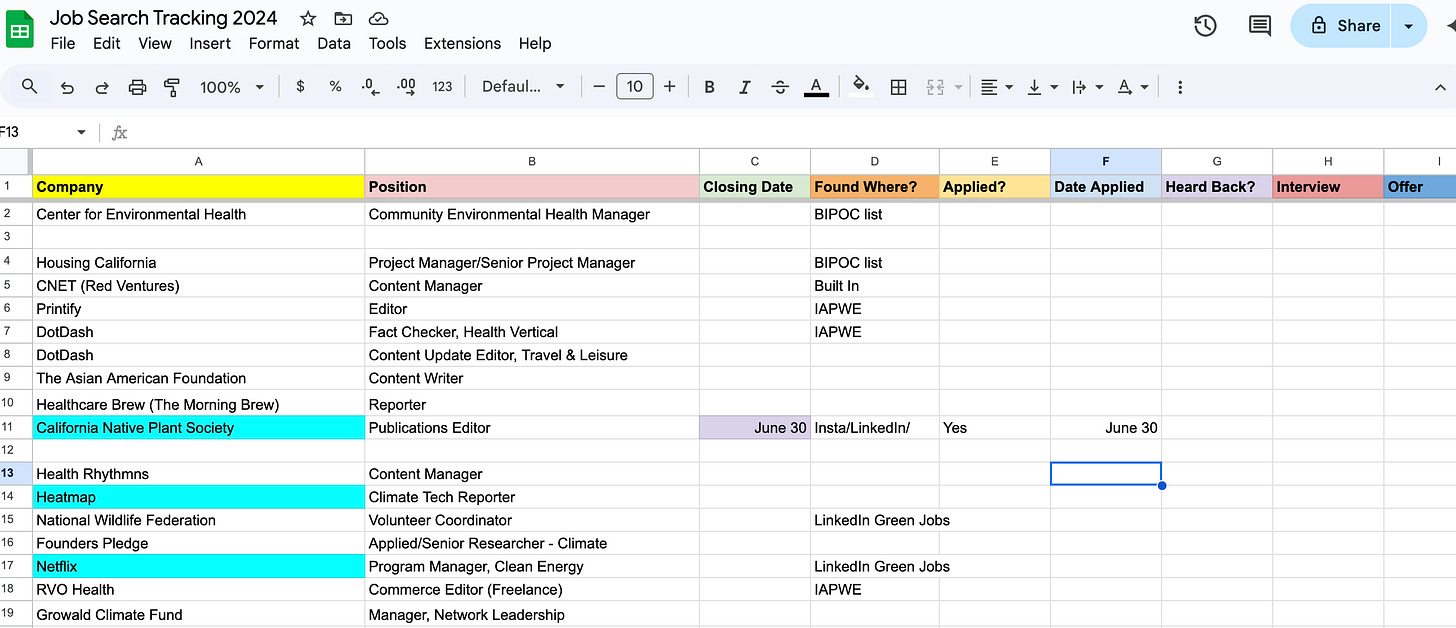Are You Using Systems to Procrastinate?
Why organizational tools are catnip for chronic overthinkers.
A few months ago, I came across a post on Substack from the great account, milk and cookies, that categorized people into two categories:
People with palette brains
People with spreadsheet brains
People with spreadsheet brains are, as you can imagine, people who thrive on a good Excel sheet, plan several steps ahead, and live in color-coded tabs.
People with palette brains see the world in a much more gauzy cloud of exciting projects. They live in a world of abstraction and make big connections between ideas. They run on vibes, not to-do lists.
Caveat: These are big, unscientific generalizations, and many people probably fall into both camps.
Our society overtly values the spreadsheet brain and devalues the palette brain. There’s a reason you see far more "must be detail-oriented” bullet points in job descriptions compared to “seeking a big picture thinker who can connect abstract ideas.” (I have seen the latter on a job description maybe…twice. And I’ve read a lot of job descriptions).

For the longest time, I “masked” or pretended to be a neurotypical (without even realizing I was doing it). I was doing whatever I needed to in order to survive the modern workforce in a world that was not built to accommodate cognitive differences or disabilities.
Part of my masking was pretending I enjoyed organizational systems in themselves (like Excel) rather than as a means to an end. It meant pretending I had a spreadsheet brain.
I pretended so well that I even got a dopamine hit from composing fun, color-coded Excel spreadsheets during my job search, with multiple tabs ranging from where I found the job to whether I had a contact there to whether I had followed up on said contact to whether I had gotten an interview request.
Confession time: I spent far more time organizing my Excel spreadsheet rather than actually applying to jobs. Uploading job descriptions to my fancy system felt far more enjoyable than actually modifying my resume and writing a cover letter for each job — a dreary process that took me two hours per job — and hitting “apply.”
In effect: I was engaging in a toxic form of productive procrastination, whereby you procrastinate on tasks that are ostensibly “productive” on the surface but actually amount to very little.
It was toxic behavior because at least the people who compulsively scour their kitchen instead of handling a work assignment *know* they are not doing the thing they actually need to be doing.
But when you have a fancy organizational work system — whether that’s an Excel sheet, Asana, xTiles, Trello, Notion, or Scrivener — and you spend hours putting data/information into those systems, you can easily delude yourself into thinking you are actually doing something productive.
At least, that’s what I did for the better part of a year.
Whereas, if I’d ditched the organizational system right away and instead haphazardly applied for jobs here and there without a system, sure, I’d occasionally miss a deadline for a job here. Or I’d forget some cool opportunity even exists because I had not neatly filed it away in my spreadsheet.
Yet, at least I would have applied to something here and there rather than organized away a job with the hope of one day applying, but never actually did.
That’s not to say I didn’t apply to any jobs. Of course, I did. But I can’t say I applied to more jobs because of the system.
I’ve seen countless writers out there convince themselves that they’ll finally write their novel once they figure out how the heck to use Scrivener, or countless neurodivergent individuals say they’ll get on top of their to-do list with this or that new app (before their brain eventually gets bored with it, they forget to mention).
The reality is that a chaotic, haphazard method of doing things — like scribbling one chapter in your notebook and the next one in your notes app — is better than spending months or years searching for ever shinier systems to soothe your overthinking brain.
I’m not denying that some organizational systems really do work for folks. I’ve met people with ADHD who swear up and down by Notion. For the life of me, I don’t understand the appeal, but I get that it works for some folks.
But it’s also true that people wrote novels back when we had to write an entire book on a typewriter. They applied for jobs back when we had to go to Kinkos, print out a dozen job applications, put them in manila envelopes, and mail them off or drop them off by hand.
And even within those rudimentary systems…people still found ways to get the work done. Sans fancy tech gadgets and apps.
Organizational tools can help us be more efficient, but especially if you’re neurodivergent, it’s important to be honest with yourself. Because entrepreneurs will absolutely keep coming up with new organizational tools every year, month, and day for your brain to fixate on. That is a guarantee.
Do you really need this new organizational tool? Or is it just a shiny new toy?
Until next time….





I feel like this post was written for me? 😭
I am guilty of getting too carried away by the "organization" of it all that I actually fail to accomplish meaningful tasks.
Lately however, I've been trying to take several steps back so that I can try and focus on the bigger picture, hopefully. It seems to be working to some extent. I'm still a long way away from figuring out how to successfully work with my brain. 🤷♀️
Oh, also I love the term "palette brain"!!